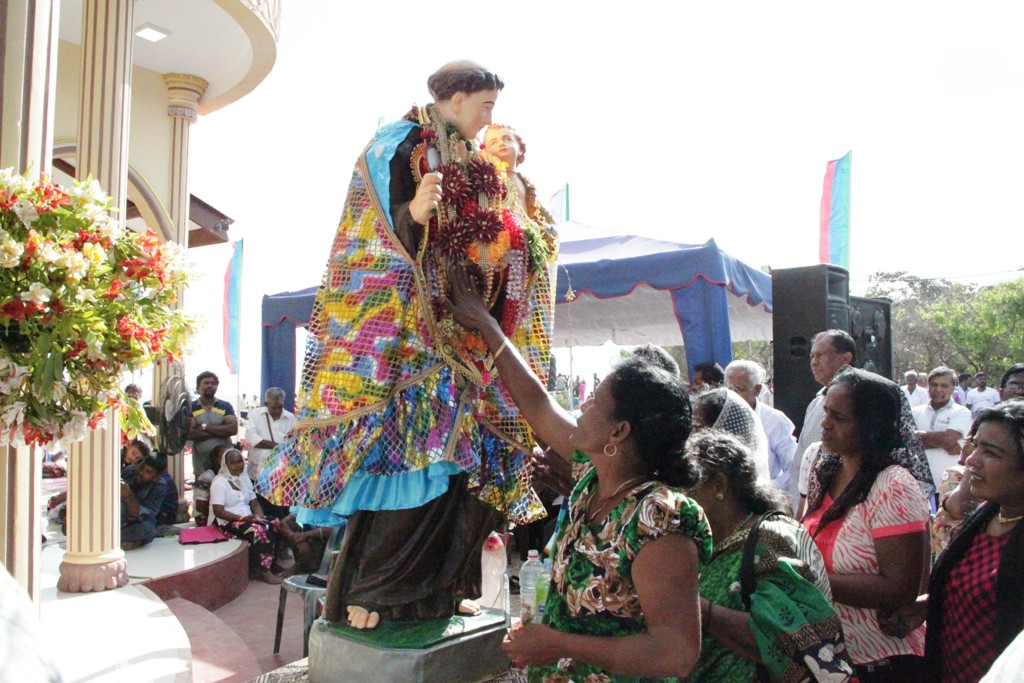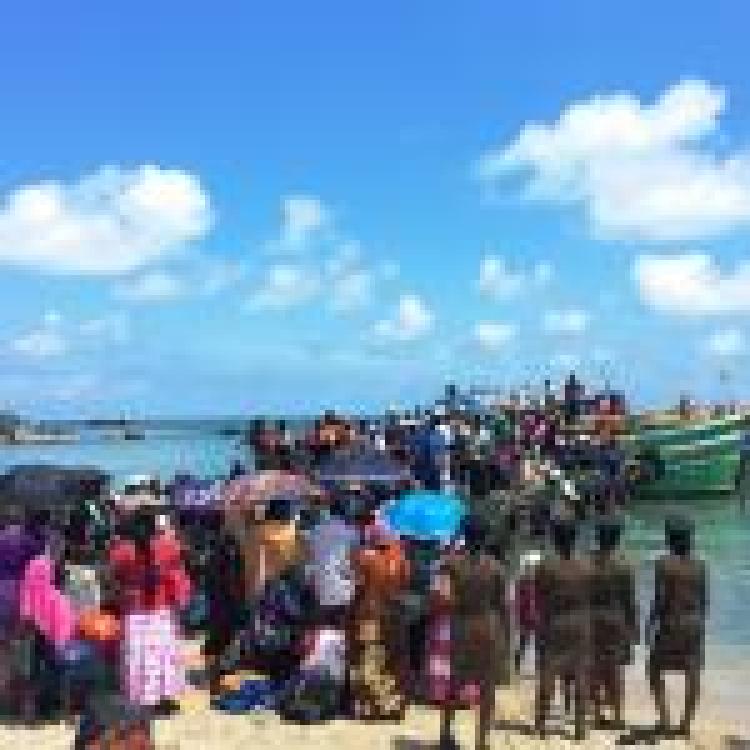A devotee prays at Katchatheevu in 2017.
Last week, India’s most senior political figures sparked off a row that continues to rage. Prime Minister Narendra Modi and Foreign Minister S Jaishankar expressed their outrage at the 1974 decision by Congress to cede the Katchatheevu islet to Sri Lanka after a set of new documents were publicly unveiled. The small island midway across the Palk Strait remains uninhabited but carries significant political weight, with Indian political parties in Tamil Nadu and beyond seeking to distance themselves from the decision to grant the territory to Colombo. Though the row is domestic for now, it scratches at a deeper issue that remains emotive and crucially important for millions of Tamils – the safety of Tamil Nadu fishermen.
The sovereignty of Katchatheevu and the constant harassment of Indian fishermen by Sri Lankan forces go hand in hand, as Jaishankar frankly illustrated to reporters when he outlined the thousands of arrests that have taken place over the years. “In the last 20 years, 6,184 Indian fishermen have been detained by Sri Lanka,” he said, as he lambasted the decision to cede the islet. “And in the same period, 1,175 fishing vessels – Indian fishing vessels – have been seized, detained, apprehended by the Sri Lankans.”
The rationale behind his remarks, and those of his BJP colleagues, is clear. To ensure security for their fishermen as they go about their daily lives, an Indian presence is a necessity. The physical might of New Delhi would be enough to ensure that the repeated attacks by Sri Lanka on Indian citizens cease entirely.
Indian fishermen have not always faced the threat they do now. During the armed phase of the Tamil Eelam independence struggle, scores across the water in Tamil Nadu were sympathetic and supportive. For decades there were friendly relations between the two regions, as locals on both sides engaged in the trade of goods, services and even people. Many from Tamil Nadu joined various armed movements themselves. Katchatheevu was a symbol of that cooperation and one that still shines today, with thousands from Tamil Eelam and Tamil Nadu coming together for the annual Feast of St Anthony ceremony.
But it is with the start of Sri Lanka’s military occupation of the region and the end of the Liberation Tigers of Tamil Eelam (LTTE), that tensions began to rise. With tens of thousands of heavily armed Sri Lankan troops occupying the region, Indian fishermen found themselves under fire. To this day, Tamil Nadu fisherfolk face detention and harassment. Sri Lanka is a malign force and a threat to Tamils on both sides of the Palk Strait. For as long as Colombo rules over Eelam and its waters, no Tamils will be safe.
The plight of Indian fishermen and the need to regain control of Katchatheevu has been raised in Tamil Nadu for decades, but always superficially each time. Indeed, whilst Indian fishermen have been arrested, beaten and even murdered, their suffering has usually been utilised by politicians to barb at the opposition, and occasionally at Sri Lanka, but with no real force behind it. Verbose remarks are made, and lengthy letters are written, yet without any tangible follow-up, the Sri Lankan state continues to attack Tamils. Though Jaishankar may opine over Sri Lanka’s targeting of fishermen now, just last month he spoke of how close his government had drawn ties with Colombo. “Blood is thicker than water,” he claimed, even as more of his citizens languished in Sri Lankan prisons.
It is no surprise that the furore comes just weeks before Tamil Nadu goes to the polls. But now that Katchatheevu has captured public interest, it must go beyond petty electioneering and empty slogans. For its part, Tamil Nadu’s DMK can no longer obfuscate on the issue. The threat from Colombo must be sternly neutralised. And for Delhi, this is an opportunity to truly demonstrate that it will safeguard the lives of its citizens in Tamil Nadu. All sides, including the Indian prime minister, must back their words with action.


